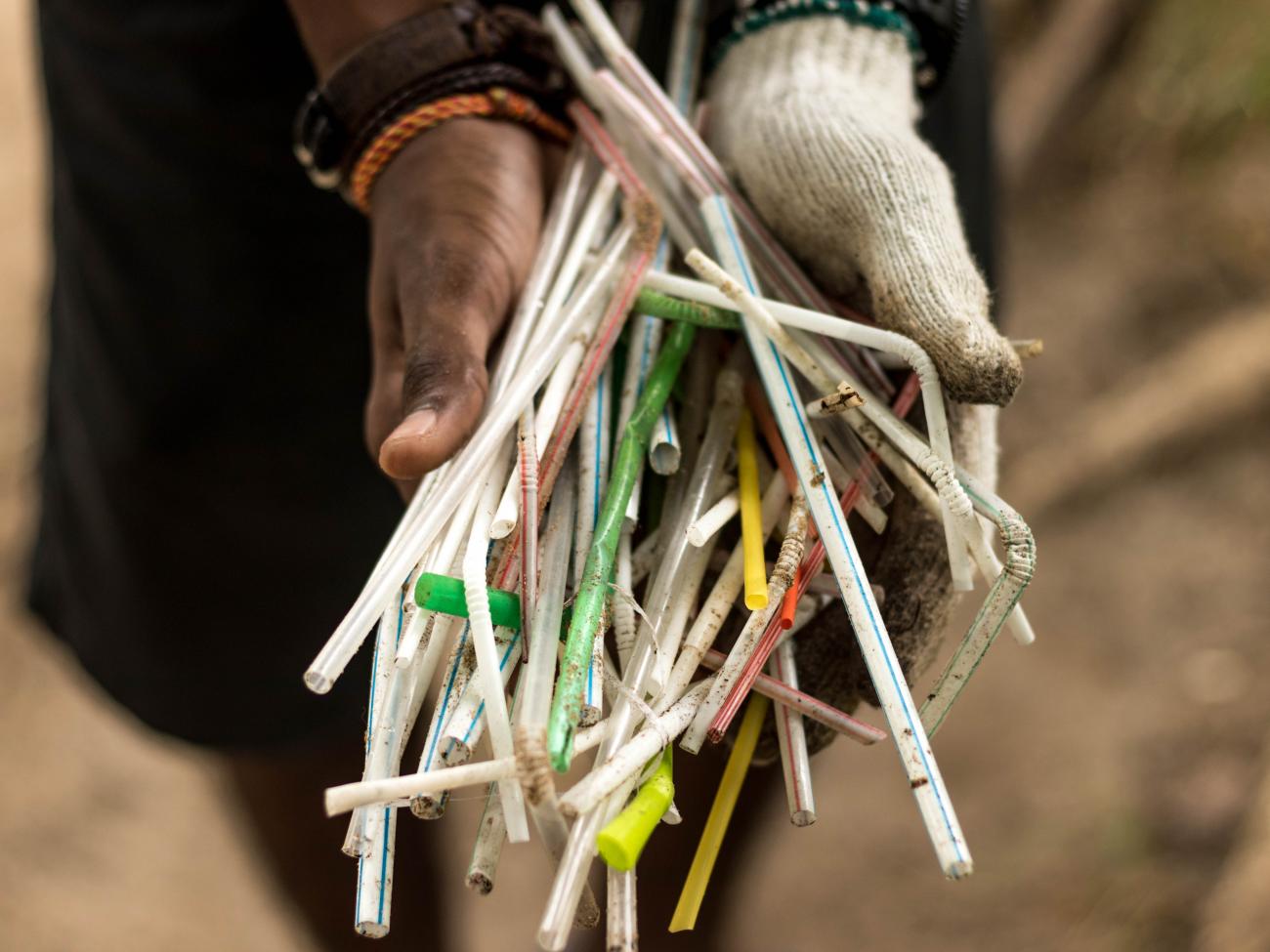Another plastic ban, but what have we learnt?

If you were listening to the budget address in the National Assembly last week, you would have again heard that the government will be banning plastic straws on the 1st January 2019 - see the Ministry of Environment, Energy and Climate Change's latest Facebook post. Just over a month away and we have yet to hear the specifics of the ban. What will be covered? What will be exempt? How will it be enforced? Etc.
Whilst plastic straws are not the most collected item on our monthly clean ups (it's uncertain where the Ministry's figures come from), we do collect them in large numbers - including the smaller plastic straws found on juice/milk carton boxes. How these will be handled under the plastic straw ban remain a mystery. We hope not to see a repeat of the plastic bag ban where so many plastic bags are exempted and no timeline is given for the complete phasing out of these items (where possible).
Over a year since the plastic bag ban, not only are we seemingly collecting these exempted plastic bags in higher numbers on our beach clean ups (acknowledgedly more data is needed) - for example, the smaller ones used for meat, fruit and veg, snacks etc., that we’ve witnessed being handed out in instances that are illegal under the regulations - we are also seeing an increase in biodegradable plastic bags and compostable bags that are also allowed in the country as alternatives to plastic bags.
It is a common misconception that biodegradable plastic bags and compostable bags will easily break down (unlike the 20 years taken for a plastic bag to degrade). The reality however is quite different - these bags (and other items labelled "biodegradable") require very specific conditions in which to break down - conditions you'd be hard pressed to meet in the oceans. A recent report of the United Nations Environment Programme (UNEP), entitled Biodegradable Plastics and Marine Litter, Misconceptions, Concerns and Impacts on Marine Environments, finds that complete biodegradation of plastics occurs in conditions that are rarely, if ever, met in the oceans, with some polymers (the building blocks of plastic), requiring industrial composter and prolonged temperatures of above 50°C to disintegrate. It is no surprise that UNEP's chief scientist, Jacqueline McGlade, has warned that biodegradable plastic bags are a "false solution" to the marine plastic problem.
The same goes for compostable bags. You'd think that a bag labelled "compostable" can simply be thrown out in your backyard compost along with your fruit and veg scraps, right? Wrong. Just look at the compostable bags (and other items such as compostable straws) that we've seen entering the country and it's no secret that these will only break down in an industrial composter (run a quick Google search on the brands you've seen around and you'll see that this information is stated on their websites).
In Seychelles, we simply do not have the infrastructure to deal with these waste streams. Without industrial composters, and without the segregation of waste in the first place, it is curious that these items continue to be allowed in the country and are presented as good alternatives (especially if the intended beneficiary of the ban was our oceans and one of its goals was protection thereof!)
Worryingly, it would appear that we’ve replaced one waste stream (plastic carrier bags) for another that we cannot handle and is also harmful to the oceans. This is an issue we’ve raised with the Ministry previously and we hope that the Ministry will be in a position to start a real conversation about this soon - especially leading up to the plastic straw ban - which presents the opportunity to revise approaches based on lessons learnt.
Further reading -
https://news.un.org/en/story/2015/11/515792-biodegradable-plastics-are-not-answer-reducing-marine-litter-says-un
https://www.unenvironment.org/gpa/documents/publications/BiodegradablePlastics.pdf
https://www.theguardian.com/environment/2016/may/23/biodegradable-plastic-false-solution-for-ocean-waste-problem